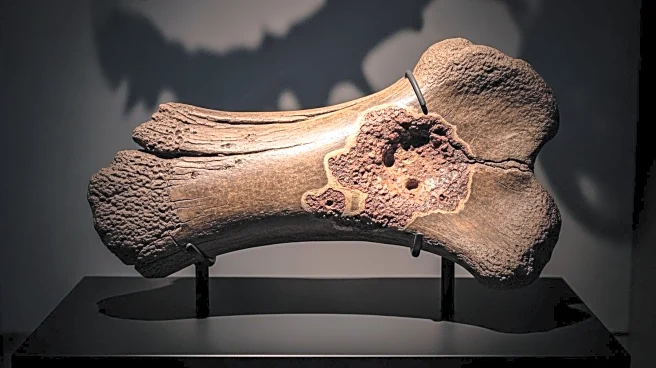What is the story about?
What's Happening?
Researchers have discovered 80-million-year-old sauropod fossils in Brazil, revealing that these dinosaurs suffered from osteomyelitis, a severe bone infection. The fossils, found in the São José do Rio Preto Formation, show distinct lesions indicating the disease's presence. The study provides insights into the health challenges faced by these prehistoric giants and the environmental factors that facilitated the spread of the infection.
Why It's Important?
The discovery enhances the understanding of dinosaur health and the evolutionary history of ancient diseases. It offers a tangible connection to the challenges faced by these animals millions of years ago. The ability to identify diseases in fossil records opens new avenues for paleontological research, contributing to discussions on the evolution of diseases and their impact on ecosystems.
What's Next?
Researchers will continue to analyze the sauropod fossils to gain further insights into the disease's progression and its impact on dinosaur physiology. The study of ancient pathogens may lead to breakthroughs in understanding the interactions between pathogens and their hosts. The findings could also inform modern medicine and biotechnology.















